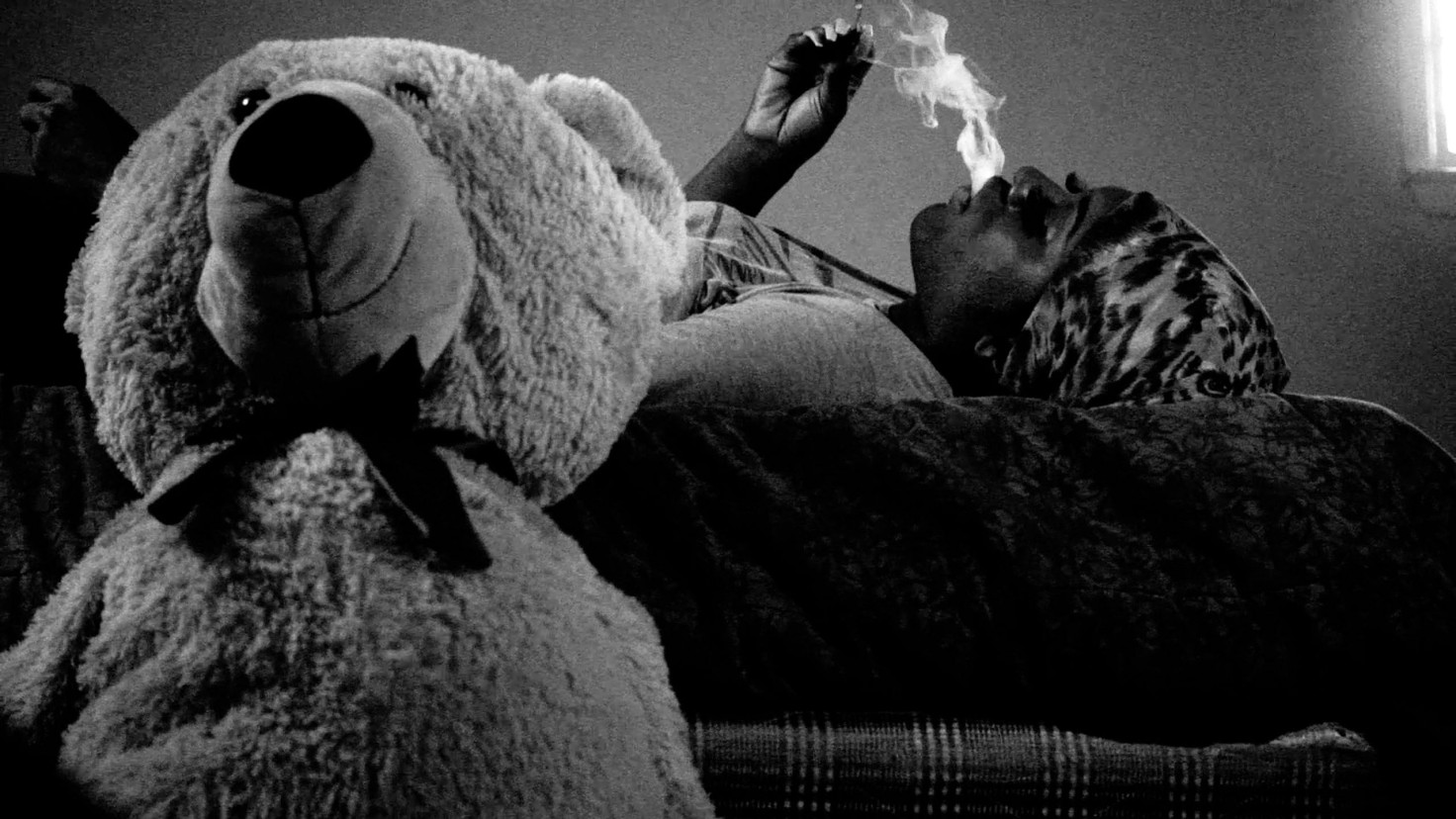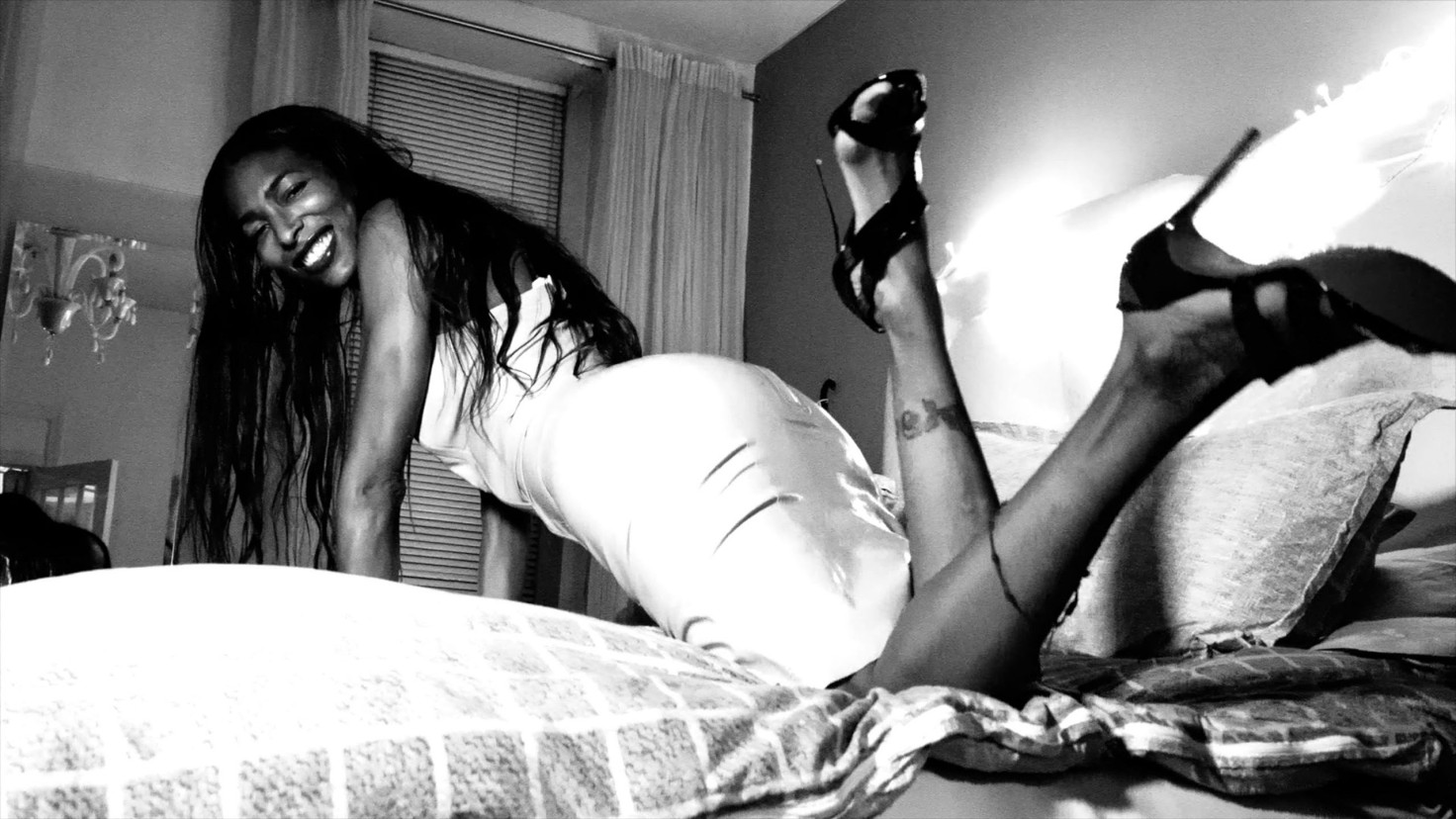Meanwhile, in the dark, Daniella asks, “Are you really at peace with yourself knowing that the best of you is only seen when you are a survivalist?” In her words I hear a figurative capacity—this marks my second attempt at answering the aforementioned questions of refusal, subjugation, etc.
We, as Black trans women, know too much, especially considering that we are like no other living being. It’s as if the world wants us to carry the burden of slavery and colonialism, as if the project of gender hasn’t always been tricky. Transness only reveals, or rather exposes, the truth, perhaps the inside meaning, of a being. In reproducing the body, Black trans women understand transness as a racial category. We know and claim our agency within the radical Black tradition of writing and rewriting the self for ideological, theological, and philosophical reasons. This project of finding a voice, a narrative strategy, underscores transness as a “Negro Way of Saying.” And this is why some want us dead. Because, in their minds, a dying language cannot tell the truth or be critical. But they don’t know that to be absent from the body is to be one with the Holy Ghost. A ghost that lingers until it finds its way into the homes and hearts of people willing to translate matters of the spirit. What does it mean to be treated like a dying language when you are an architect of the living language? When you are a translation living, a living translation? It is to keep the secret, the tradition, and to pass it on to those who understand and will archive this. It is also to find a loophole of retreat for the sorrow, heartbreak, pain, and isolation this paradoxical world engenders.
Knowing this, I turn to Koko, a bird whose death we are all accountable for. I can’t wrap my head around how someone could take away a girl who so loved the world that she was willing to break her body into pieces for consumption, so that she and her family might have life more abundantly. The first words she utters on-screen are, “The only reason I started sex work was because my mom, my sister, and I was homeless.” Because there is a dominance that governs how we might constitute a life, we are left daily to consider the precarious nature of how we labor. There is oppressive language all around us, yet we insist on love. Yet we find a way to make meaning of the women we are, so that others might know what it is to be us. I believe this was the measure of Koko’s life and performance in the film. She left us language, desire, and yearning that is felt in the way hairs rise on the skin in chills. She was clear about the ways men feast upon and exploit the kind of language she produces. “But trade’ll also kill you too, so you have to be careful,” she warns, marking an eerie, ghostly presence. She goes on to say that she doesn’t have a heart for men or the people who have discarded her, but she did have a heart for survival. What happens to language when the body has been ruptured by the gun? It transcends.



